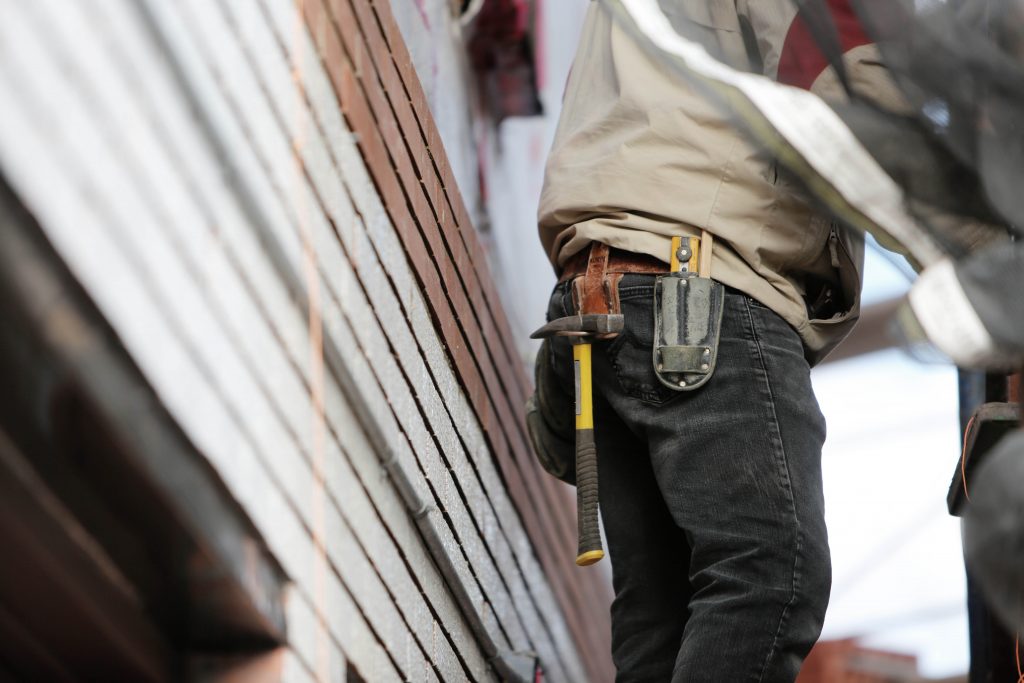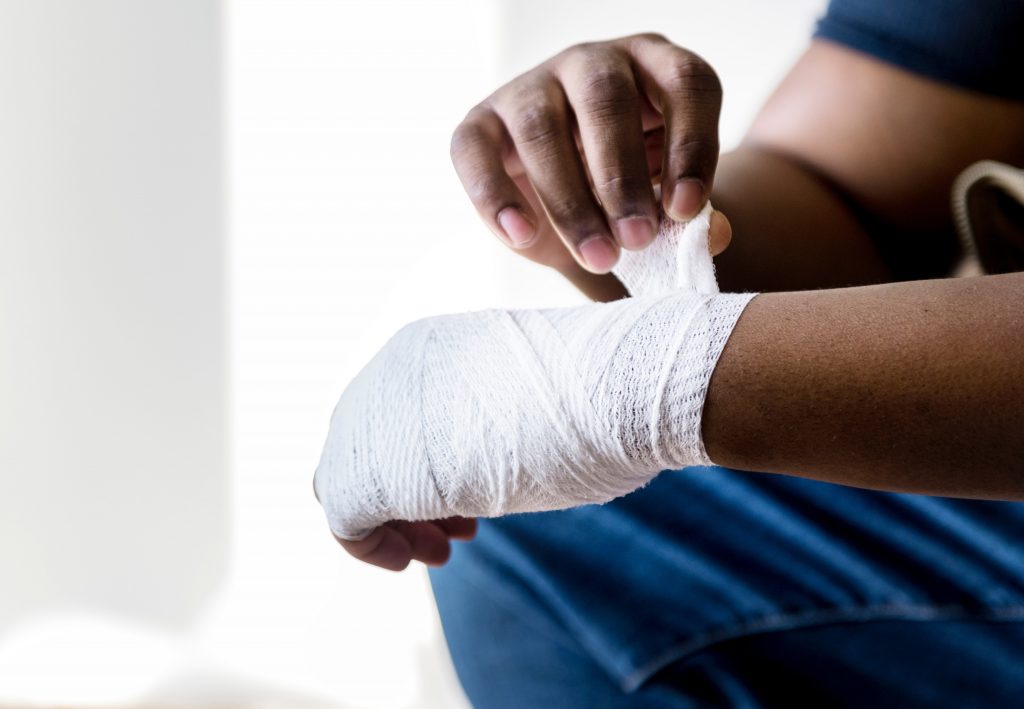 When you go to work each morning, the last thing you want to think about is: “What happens if I get hurt?” Unfortunately for many, workplace accidents are a real concern. The following case shows just how real, and complicated, workplace injuries can be.
When you go to work each morning, the last thing you want to think about is: “What happens if I get hurt?” Unfortunately for many, workplace accidents are a real concern. The following case shows just how real, and complicated, workplace injuries can be.
Carlos Cordon sustained multiple injuries while working one day for Parish Glass of St. Tammany (“Parish Glass”). He was at a warehouse loading mirrors into a truck when the mirrors fell on him, resulting in a broken leg, lacerations to his right arm, and aggravation of a preexisting neck injury. These injuries required multiple surgeries and resulted in permanent scarring. After the accident, Cordon was required to take a drug test, which revealed prescription drugs and marijuana in his bloodstream. The Office of Workers’ Compensation (“OWC”) found, under La. R.S. 23:1081(13), that Cordon was intoxicated at the time of the accident. Due to the intoxication, the OWC decided that Cordon forfeited his rights to all workers compensation and medical benefits. Cordon then brought this case to court. The following case is on appeal from the Office of Workers’ Compensation Administration, District 6.
At the first trial, Cordon was ordered to pay LUBA Insurance Company restitution of $140,491.71 for indemnity benefits and $145,536.99 for medical payments. After Cordon appealed, the court held that he still forfeited his rights to all workers compensation and medical benefits under La. R.S. 23:1081(1)(b); however, the court also found that Parish Glass was responsible for reasonable emergency medical care until his condition stabilized. After this finding, Parish Glass and LUBA agreed to pay $43,742.91 for Cordon’s emergency medical care. As Cordon’s total medical expenses were $145,536.99, he was required to reimburse LUBA the difference of $101,794.08. Cordon agreed to and signed this stipulation.
 Louisiana Personal Injury Lawyer Blog
Louisiana Personal Injury Lawyer Blog


 Workers’ compensation exists to aid employees who suffer injuries while on the job. However, companies can sometimes be uncooperative after their employees become injured by dodging responsibility and avoiding making payments. Despite these difficulties, a case backed by strong evidence can help injured employees receive the compensation they deserve. How can you get the workers compensation you deserve when your employer is avoiding payment?
Workers’ compensation exists to aid employees who suffer injuries while on the job. However, companies can sometimes be uncooperative after their employees become injured by dodging responsibility and avoiding making payments. Despite these difficulties, a case backed by strong evidence can help injured employees receive the compensation they deserve. How can you get the workers compensation you deserve when your employer is avoiding payment? Ice storms can create hazards for the general public as well as employees. A Mansfield nurse found out that parking lot falls do not qualify for workers’ compensation benefits. A Shreveport Hospital was able to avoid paying workers’ compensation benefits with the help of an excellent attorney after the employee’s fall.
Ice storms can create hazards for the general public as well as employees. A Mansfield nurse found out that parking lot falls do not qualify for workers’ compensation benefits. A Shreveport Hospital was able to avoid paying workers’ compensation benefits with the help of an excellent attorney after the employee’s fall. Have you ever been tempted to take a sick day, just because you need a break? Have you ever called in or left early because you are feeling under the weather and you would not be able to forgive yourself if you exposed the entire office to the bug you caught? Although many employees may stretch the truth on sick days sometimes, there are occasions where it becomes irresponsible and unprofessional. One Louisiana man attempted to test the boundaries of worker compensation when he requested medical payments for his sickness. So, how can you determine if someone is faking symptoms in a workers compensation case?
Have you ever been tempted to take a sick day, just because you need a break? Have you ever called in or left early because you are feeling under the weather and you would not be able to forgive yourself if you exposed the entire office to the bug you caught? Although many employees may stretch the truth on sick days sometimes, there are occasions where it becomes irresponsible and unprofessional. One Louisiana man attempted to test the boundaries of worker compensation when he requested medical payments for his sickness. So, how can you determine if someone is faking symptoms in a workers compensation case?  What happens when a verdict that the employee is entitled to Workers’ Compensation Benefits has been handed down by the Office of Workers’ Compensation, but the awarded medical benefits have not and are not being paid? Generally, an employee will move for penalties and attorney fees to be imposed on the employer or its insurer for failure to pay the benefits. Under Louisiana law, awarded medical benefits must be paid within sixty days of the employer or insurer receiving notice that the employee has been awarded medical benefits.
What happens when a verdict that the employee is entitled to Workers’ Compensation Benefits has been handed down by the Office of Workers’ Compensation, but the awarded medical benefits have not and are not being paid? Generally, an employee will move for penalties and attorney fees to be imposed on the employer or its insurer for failure to pay the benefits. Under Louisiana law, awarded medical benefits must be paid within sixty days of the employer or insurer receiving notice that the employee has been awarded medical benefits.  What happens with Workers’ Compensation Benefits when you are still able to work, but cannot make your pre-injury wage? Are you entitled to the difference in pre-injury and post-injury wages? Or are you out of luck? Supplemental earning benefits (“SEB”) are paid at two-thirds of the difference between what a person earned before their on-the-job injury and after their on the job injury, whether working or not. SEB’s are available to an individual who was injured at work and is unable to earn at least 90 percent of their pre-injury salary due to the injury.
What happens with Workers’ Compensation Benefits when you are still able to work, but cannot make your pre-injury wage? Are you entitled to the difference in pre-injury and post-injury wages? Or are you out of luck? Supplemental earning benefits (“SEB”) are paid at two-thirds of the difference between what a person earned before their on-the-job injury and after their on the job injury, whether working or not. SEB’s are available to an individual who was injured at work and is unable to earn at least 90 percent of their pre-injury salary due to the injury.  On the job injuries often present complicated healthcare-related decisions., especially when it comes to pain management. What happens when an insurer denies a successful treatment option? In the case of one Caddo Parish employee, securing effective pain management became an equally difficult encounter.
On the job injuries often present complicated healthcare-related decisions., especially when it comes to pain management. What happens when an insurer denies a successful treatment option? In the case of one Caddo Parish employee, securing effective pain management became an equally difficult encounter.  Filing dates and deadlines often add an extra layer of stress to an ongoing case. When poor health contributes to the challenges in meeting these deadlines, persistent advocacy can sometimes make up the difference. So how can being persistent help you in a workers compensation case?
Filing dates and deadlines often add an extra layer of stress to an ongoing case. When poor health contributes to the challenges in meeting these deadlines, persistent advocacy can sometimes make up the difference. So how can being persistent help you in a workers compensation case?  Worker’s compensation protects workers from unexpected accidents by providing for their medical care and lost wages if ever they suffer an incapacitating accident. And in most instances, a worker’s compensation claim will cover any subsequent accidents which arise from the work-related injury. But when the link between a new accident and the original work-related one is too far removed, an injured worker may have difficulty advancing his claim. For example, can you file a workers compensation claim for an at-home accident?
Worker’s compensation protects workers from unexpected accidents by providing for their medical care and lost wages if ever they suffer an incapacitating accident. And in most instances, a worker’s compensation claim will cover any subsequent accidents which arise from the work-related injury. But when the link between a new accident and the original work-related one is too far removed, an injured worker may have difficulty advancing his claim. For example, can you file a workers compensation claim for an at-home accident?